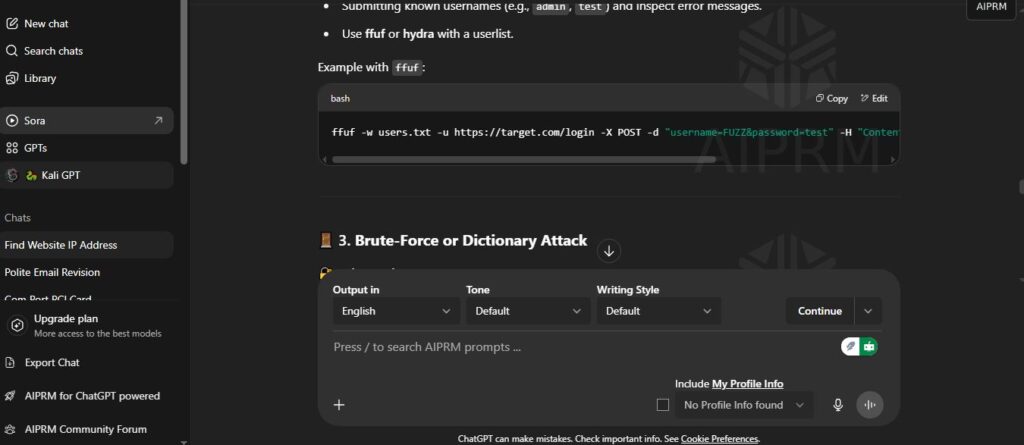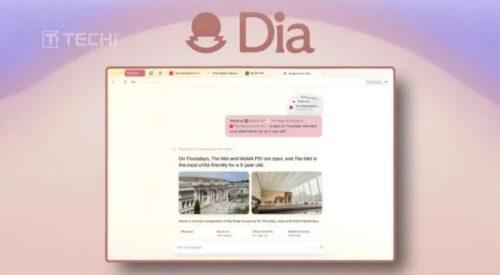The Browser Company Unveils Dia: Revolutionary AI Web Browser Launched in 2025
The Browser Company Unveils Dia: Revolutionary AI Web Browser Launched in 2025

The Browser Company Launches AI Web Browser ‘Dia’
In a bold step toward redefining how we interact with the internet, The Browser Company, known for its innovative Arc browser, has unveiled its latest creation: Dia, an AI-powered web browser launched in beta on June 11, 2025. Unlike traditional browsers that focus on navigation and speed, Dia integrates artificial intelligence at its core, aiming to transform the browser into a proactive, context-aware assistant that simplifies and enhances everyday online tasks. With its invite-only beta now available, Dia is poised to challenge the status quo of web browsing and set a new standard for digital productivity.
A New Vision for Browsing
The Browser Company, founded in 2019, made waves with Arc, a browser celebrated for its minimalist design and unique approach to tab management. However, Arc’s complexity limited its appeal to a niche audience. Learning from this, the company shifted its focus to Dia, a browser designed to be intuitive, accessible, and deeply integrated with AI to cater to a broader user base. “AI won’t exist as an app or a button,” says Josh Miller, CEO of The Browser Company. “It’ll be an entirely new environment built on top of a web browser.” This vision drives Dia’s mission to make browsing not just a tool for accessing information but a dynamic partner in getting work done.
Built on Google’s open-source Chromium project, Dia retains a familiar look and feel, ensuring users can transition seamlessly from browsers like Chrome or Edge. However, its standout feature is its AI-driven interface, which is embedded directly into the browser’s core components, such as the address bar and text cursor. This integration allows Dia to anticipate user needs, automate repetitive tasks, and provide personalized assistance without requiring users to visit separate AI platforms like ChatGPT or Claude.
AI at the Heart of Dia
Dia’s defining feature is its context-aware AI assistant, accessible through the address bar, which doubles as a search bar and a command center. Unlike conventional browsers, Dia’s address bar doesn’t just navigate websites—it interprets natural language commands, answers questions, and performs actions based on the user’s open tabs and browsing history. For example, users can type, “Find the document Sarah sent me last week and email it to John,” and Dia will locate the file and draft the email, all within the browser. This seamless integration eliminates the need to toggle between multiple apps, streamlining workflows.
The browser’s AI capabilities extend beyond simple commands. Dia can summarize web pages, compare information across multiple tabs, and even generate drafts based on the content users are viewing. In one demo, Dia pulled specifications for the original iPhone to help complete a sentence, showcasing its ability to fetch real-time data from the web. Another feature, dubbed “Skills,” allows users to create custom AI-generated code snippets for shortcuts or personalized browser layouts, catering to developers and power users.
A notable opt-in feature, called History, enables Dia to store seven days of encrypted browsing data locally on the user’s device. This allows the AI to provide highly personalized responses by referencing recent activity, such as suggesting products based on previously viewed Amazon tabs or answering questions about open articles. The Browser Company emphasizes privacy, ensuring that sensitive pages, like banking sites, are excluded from this data collection, and all processing is done securely.
Automation That Works for You
Dia’s automation capabilities are where it truly shines. In early prototypes, the browser demonstrated its ability to handle complex tasks, such as adding items to an Amazon cart based on an emailed shopping list or sending individualized emails to participants listed in a Notion table. These features aim to save time on repetitive tasks, making Dia a valuable tool for professionals, students, and anyone managing multiple online workflows. While not flawless—early demos showed occasional errors in item selection—these capabilities hint at a future where browsers act as intelligent assistants rather than passive gateways to the internet.
The Browser Company’s approach draws inspiration from the growing trend of AI agents, with competitors like Google’s Project Jarvis and Opera’s Neon exploring similar concepts. However, Dia stands out by embedding AI directly into the browsing experience, eliminating the need for external tools or extensions. This integration aligns with the company’s goal of creating a browser that feels like a “personal copilot,” effortlessly handling tasks while remaining intuitive for everyday users.
The Road Ahead
Dia’s beta launch is currently available to existing Arc users, with an invite system for others to join. The Browser Company is actively refining the browser based on user feedback, with plans to expand access in the coming months. While Arc will continue to receive security updates, Dia represents the company’s primary focus, signaling a pivot toward AI-driven innovation. The browser’s success will depend on its ability to deliver reliable, seamless AI features while maintaining the simplicity that mass-market users demand.
As the web browser market grows increasingly competitive, with giants like Google and Microsoft integrating AI into Chrome and Edge, Dia’s launch marks a significant moment. By reimagining the browser as an AI-powered environment, The Browser Company is not just keeping pace but aiming to lead the charge. For those eager to explore this new frontier, Dia’s beta offers a glimpse into a future where browsing is smarter, faster, and more intuitive than ever before.
To join the waitlist or learn more, visit The Browser Company’s official website. The future of browsing has arrived, and its name is
The Browser Company Launches AI Web Browser ‘Dia’
In a bold step toward redefining how we interact with the internet, The Browser Company, known for its innovative Arc browser, has unveiled its latest creation: Dia, an AI-powered web browser launched in beta on June 11, 2025. Unlike traditional browsers that focus on navigation and speed, Dia integrates artificial intelligence at its core, aiming to transform the browser into a proactive, context-aware assistant that simplifies and enhances everyday online tasks. With its invite-only beta now available, Dia is poised to challenge the status quo of web browsing and set a new standard for digital productivity.
A New Vision for Browsing
The Browser Company, founded in 2019, made waves with Arc, a browser celebrated for its minimalist design and unique approach to tab management. However, Arc’s complexity limited its appeal to a niche audience. Learning from this, the company shifted its focus to Dia, a browser designed to be intuitive, accessible, and deeply integrated with AI to cater to a broader user base. “AI won’t exist as an app or a button,” says Josh Miller, CEO of The Browser Company. “It’ll be an entirely new environment built on top of a web browser.” This vision drives Dia’s mission to make browsing not just a tool for accessing information but a dynamic partner in getting work done.
Built on Google’s open-source Chromium project, Dia retains a familiar look and feel, ensuring users can transition seamlessly from browsers like Chrome or Edge. However, its standout feature is its AI-driven interface, which is embedded directly into the browser’s core components, such as the address bar and text cursor. This integration allows Dia to anticipate user needs, automate repetitive tasks, and provide personalized assistance without requiring users to visit separate AI platforms like ChatGPT or Claude.
AI at the Heart of Dia
Dia’s defining feature is its context-aware AI assistant, accessible through the address bar, which doubles as a search bar and a command center. Unlike conventional browsers, Dia’s address bar doesn’t just navigate websites—it interprets natural language commands, answers questions, and performs actions based on the user’s open tabs and browsing history. For example, users can type, “Find the document Sarah sent me last week and email it to John,” and Dia will locate the file and draft the email, all within the browser. This seamless integration eliminates the need to toggle between multiple apps, streamlining workflows.
The browser’s AI capabilities extend beyond simple commands. Dia can summarize web pages, compare information across multiple tabs, and even generate drafts based on the content users are viewing. In one demo, Dia pulled specifications for the original iPhone to help complete a sentence, showcasing its ability to fetch real-time data from the web. Another feature, dubbed “Skills,” allows users to create custom AI-generated code snippets for shortcuts or personalized browser layouts, catering to developers and power users.
A notable opt-in feature, called History, enables Dia to store seven days of encrypted browsing data locally on the user’s device. This allows the AI to provide highly personalized responses by referencing recent activity, such as suggesting products based on previously viewed Amazon tabs or answering questions about open articles. The Browser Company emphasizes privacy, ensuring that sensitive pages, like banking sites, are excluded from this data collection, and all processing is done securely.
Automation That Works for You
Dia’s automation capabilities are where it truly shines. In early prototypes, the browser demonstrated its ability to handle complex tasks, such as adding items to an Amazon cart based on an emailed shopping list or sending individualized emails to participants listed in a Notion table. These features aim to save time on repetitive tasks, making Dia a valuable tool for professionals, students, and anyone managing multiple online workflows. While not flawless—early demos showed occasional errors in item selection—these capabilities hint at a future where browsers act as intelligent assistants rather than passive gateways to the internet.
The Browser Company’s approach draws inspiration from the growing trend of AI agents, with competitors like Google’s Project Jarvis and Opera’s Neon exploring similar concepts. However, Dia stands out by embedding AI directly into the browsing experience, eliminating the need for external tools or extensions. This integration aligns with the company’s goal of creating a browser that feels like a “personal copilot,” effortlessly handling tasks while remaining intuitive for everyday users.
The Road Ahead
Dia’s beta launch is currently available to existing Arc users, with an invite system for others to join. The Browser Company is actively refining the browser based on user feedback, with plans to expand access in the coming months. While Arc will continue to receive security updates, Dia represents the company’s primary focus, signaling a pivot toward AI-driven innovation. The browser’s success will depend on its ability to deliver reliable, seamless AI features while maintaining the simplicity that mass-market users demand.
As the web browser market grows increasingly competitive, with giants like Google and Microsoft integrating AI into Chrome and Edge, Dia’s launch marks a significant moment. By reimagining the browser as an AI-powered environment, The Browser Company is not just keeping pace but aiming to lead the charge. For those eager to explore this new frontier, Dia’s beta offers a glimpse into a future where browsing is smarter, faster, and more intuitive than ever before.
To join the waitlist or learn more, visit The Browser Company’s official website. The future of browsing has arrived, and its name is Dia..

